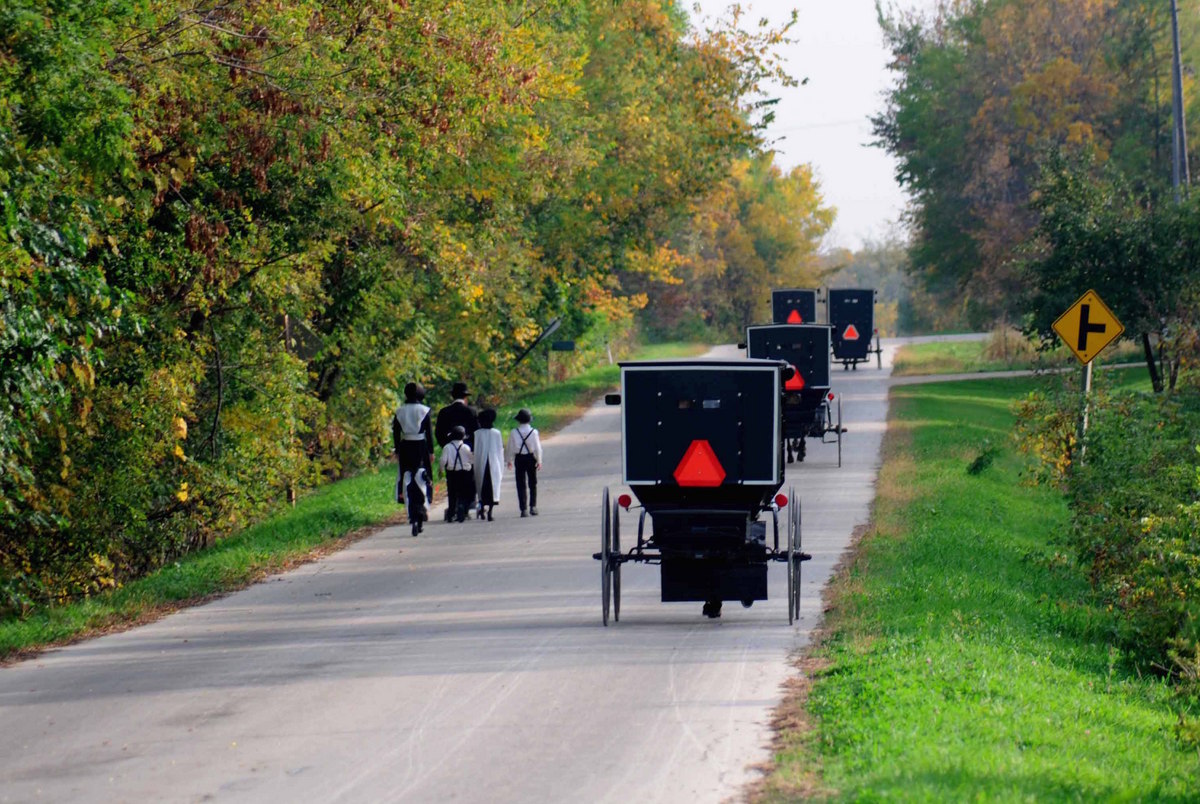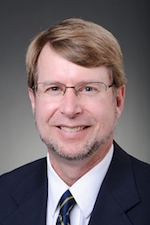Linguist helps open doors to Wisconsin’s Pennsylvania Dutch communities

Amish families travel to church services in the Kingston/Dalton settlement in Green Lake County, Wisconsin. UW–Madison Professor Mark Louden is working to dispel misunderstandings about the Amish and Mennonite communities.
Photo © Brian Sprague
For German Professor Mark Louden, translation isn’t just about language. Through outreach with Wisconsin’s Amish and Old Order Mennonite (“Plain”) communities, Louden is working to break down stereotypes of these misunderstood groups — and to build stronger bridges between the state’s different cultures in the process.
Louden, who co-directs UW–Madison’s Max Kade Institute for German-American Studies and is himself a Mennonite, serves as a cultural mediator on a range of issues affecting Pennsylvania Dutch-speaking communities. He regularly acts as an interpreter for groups who don’t feel comfortable using English with medical professionals or in legal settings.

Mark Louden
“For the Amish, a lot of it isn’t so much that they don’t speak English (because they do), but they’re not used to explaining who they are in English,” says Louden. “It’s like trying to explain the game of baseball to someone who doesn’t understand the rules — and to do it in a different language.”
Recently, Louden conducted interviews with Amish families and submitted reports to inform the debate surrounding the Badger Coulee Transmission Line project, a planned electric line that would have run through Cashton, Wisconsin’s largest Amish community. Last month, the electric company involved announced the line will be routed elsewhere.
Louden is also part of a project led by Christine Seroogy, an associate professor of pediatrics in the School Medicine and Public Health, to improve newborn screening in rural areas. Almost all Amish and Old Order Mennonite children in Wisconsin are born at home with midwives, and health care workers serving Plain families are partnering with UW–Madison to provide care in culturally appropriate ways.
Louden is working to break down stereotypes of these misunderstood groups — and to build stronger bridges between the state’s different cultures in the process.
“My role on the advisory board for this project is to bridge the gap between the Amish and outsiders, by explaining mainly to outsiders who the Plain people are and how their faith informs their everyday life and culture,” Louden says. In addition to mediation, he also visits schools, community groups and historical societies all over the state to discuss Amish and Pennsylvania Dutch history and culture. He often teaches in Germany during the summer and gives his outreach presentations there, as well.
“I see this work as upholding the Wisconsin Idea. One of the most important aspects of my job is the opportunity to do public outreach,” he says. “We’re going out into communities and trying to improve the lives of people in this state.”
Louden says his goal is to dispel misunderstandings about the Plain people, a message he also hopes resonates with students at UW–Madison. “I want all of my students to be able to leave a class and retain something that they can be able to apply to their own lives somewhere down the road,” he says. “If that’s just sitting around the Thanksgiving table saying ‘You know, the Amish are actually a little bit different than what you think,’ that’s great.”
—Nichole Francois
Subscribe to Wisconsin Ideas
Want more stories of the Wisconsin Idea in action? Sign-up for our monthly e-newsletter highlighting how Badgers are taking their education and research beyond the boundaries of the classroom to improve lives.
Tags: language, The Wisconsin Idea




